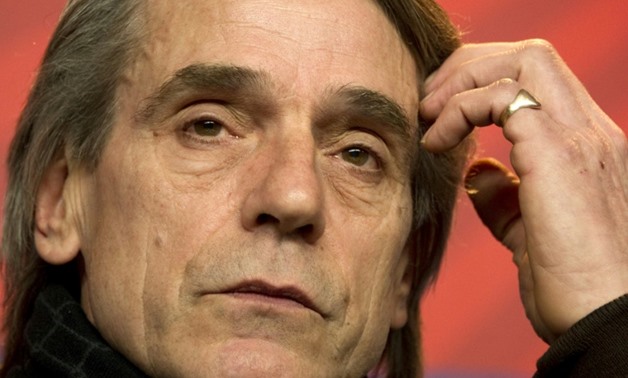
Jeremy Irons played the heartless head of a fictional Wall Street firm in "Margin Call"-AFP/File / JOHN MACDOUGALL
6 September 2018: Greedy financiers plunging the world economy into chaos and ruining the working class with impunity, the 2008 financial crisis has provided provoking -- and profitable -- material for filmmakers.
Played by British superstar Jeremy Irons, the heartless head of a fictional Wall Street firm in "Margin Call" says: "It's all just the same thing over and over... And you and I can't control it, or stop it, or even slow it... We just react. And we make a lot money if we get it right."
The 2011 film shows the merciless world of traders -- portrayed notably by the now disgraced Kevin Spacey, as well as Simon Baker and Demi Moore -- who are forced to flog worthless assets on unsuspecting clients to save their jobs.
The same lack of morality was on display in the 2015 film "The Big Short".
Also boasting a star-studded cast including Christian Bale, Steve Carell, Ryan Gosling and Brad Pitt, the film tells the story of how several investors who anticipated the subprime crisis made a fortune out of the financial ruin of others.
"I think it's a very good movie," said Steve Eisman, the hedge fund manager who was the inspiration for the character played by Steve Carell.
"And as for his portrayal of me, it's not 100 percent. What I would say is: it eliminates my sense of humour and makes me angry all the time... It's accurate enough, but it's not really me," he told AFP.
Eisman's bet that the US mortgage debt market would collapse saw the value of his portfolio more than double to $1.5 billion.
- Predators and prey -
In contrast to the frantic pace of the emblematic 1980s film "Wall Street", these films feature plenty of dialogue, calmly explaining what is going on without an apparent sense of judgement, according to French film journalist Virginie Apiou.
She said these films explore the shadows, showing the cynicism in conversations and actions we would not normally see.
"Everything is concentrated on this extremely chilling and provocative declaration that 'there is a crisis, we're going to make money off of it,'" said Apiou.
Films depicting the drama of the financial meltdown do not only focus on investors who occupy carpeted corner offices with breathtaking views of the Manhattan skyline.
They also look at the lives of the victims of the collapse, who turn from prey to predator in order to survive, as depicted in the 2014 film "99 Homes".
- 'Handing down justice' -
It is the documentaries that explore in more depth the reasons -- and responsibility -- for the crisis.
The Oscar-winning 2010 film "Inside Job" narrated by Matt Damon looked at the conniving between financiers, politicians and several eminent economists that led to a domino-like toppling of markets.
A rare European foray into the subject is "Cleveland Versus Wall Street", which uses a documentary style to follow a fictitious lawsuit by the Midwest US city against Wall Street banks.
The 2010 film "substitutes for what should have happened in reality," the film's director, Jean-Stephane Bron, told AFP.
"In this sense film is almost playing a role, handing down justice."
But far from being works born from pure idealism, films about the crisis were in fact money-spinners for Hollywood.
Taking in nearly $20 million, "Margin Call" made more than five times its budget.
Earning $133 million at the box office, "The Big Short" also pulled in nearly five times what it cost to make.
Both were critically acclaimed, as was "99 Homes", which won at least 12 prizes.


Comments
Leave a Comment